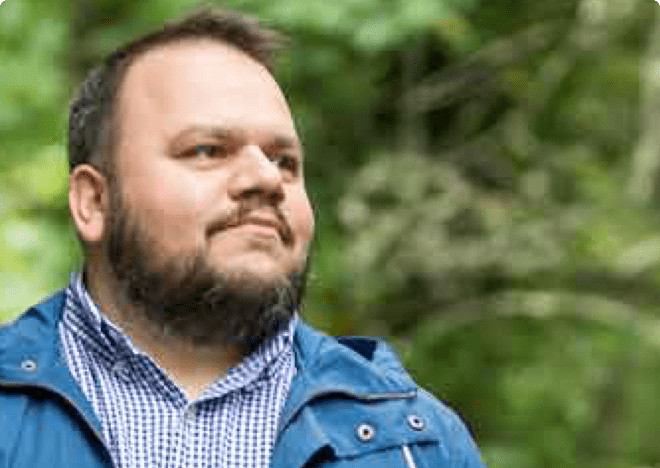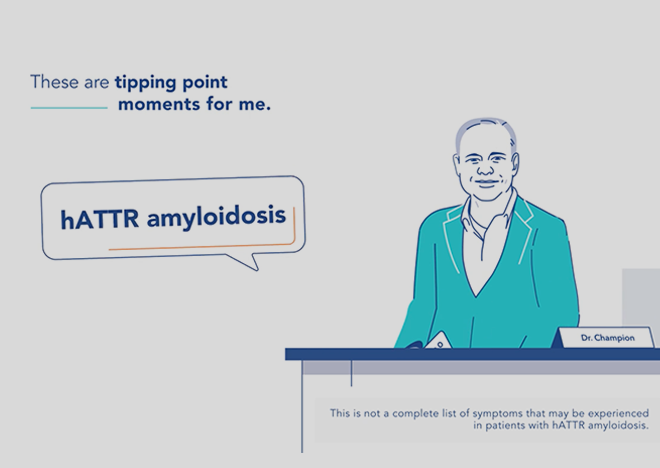Video library
Hannah's Story: Living with hATTR Amyloidosis
Transcript
Hannah: Well, it all began when my aunt stumbled upon a letter that my grandmother's doctor wrote describing her symptoms. The symptoms of nausea, neuropathy, and body fatigue. We believed that it was a brain tumor and old age that took her. Through my experience, we realized that this may not have been the case.
Growing up, I enjoyed swimming. And I played on the traveling basketball team. In seventh grade I began having a severe headache, and I got very disoriented. I was taken to the closest emergency room, and I was consulted with a neurologist. I was tested for numerous neurological conditions. They could not find anything. We felt that there was something going on, but that nobody could figure me out. As I got older, my symptoms got worse.
I no longer had the strength to do activities I once did. I woke up many nights in severe body pain. It was challenging to walk. I missed a lot of events growing up. And I had to put my education on hold. I could no longer keep up. It was not just me. My mother and my uncle were experiencing the same symptoms. My uncle was the family favorite. When his health started to deteriorate, they scheduled an appointment and was able to get answers and my uncle received his genetic test that confirmed he had hATTR amyloidosis. The doctor informed him it was hereditary and advised that all family members be tested for this gene. From that day on, I began the process with my doctor. I finally received my diagnosis at 29. Through genetic testing I found out that I had the T60A variant in the TTR gene. When I received the diagnosis, I wanted to hug my doctor and tell her thank you. My family and I had answers.
My doctor presented a treatment option, and she informed us that I walked into her doors at a perfect time because before that there wasn't any options available—options that some of my loved ones missed out on. Since working with my doctor, we have created a wonderful team. I don't have 100 percent energy back. I still have fatigue. I still have weakness. I still have neuropathy, but my symptoms are better than what they were. Early diagnosis is very important. I feel the earlier you can catch something the better off your body and health can be. My hopes for the future are that I will be able to finish my education and travel to Europe. It is amazing to see the growth of hATTR amyloidosis education just in the last 10 years. It makes me feel elated, it makes me wish that I could go and report this to my loved ones who missed out.


